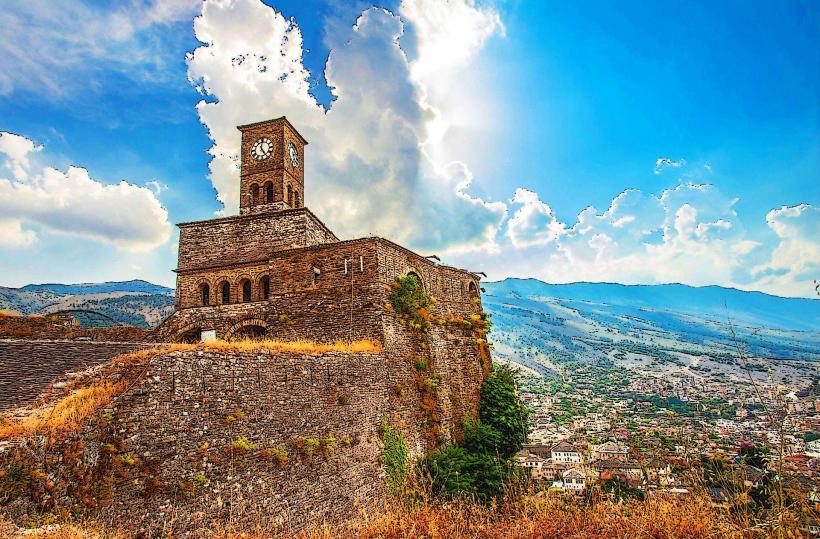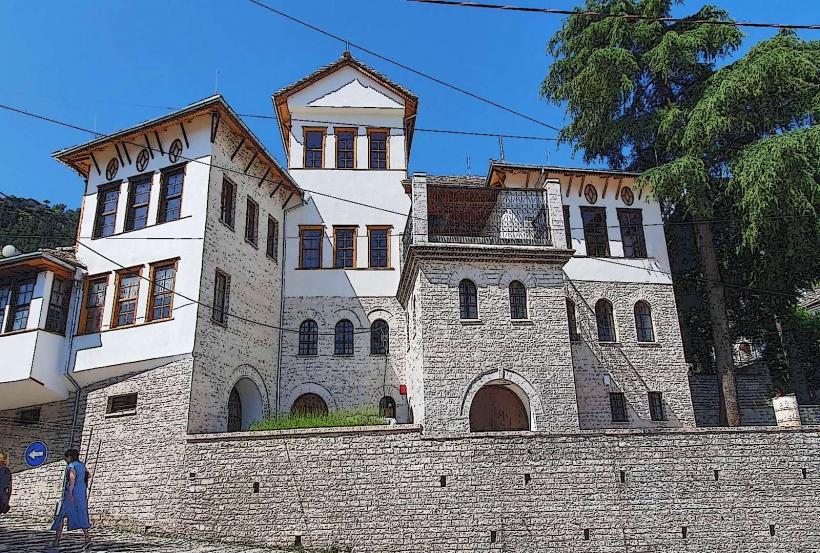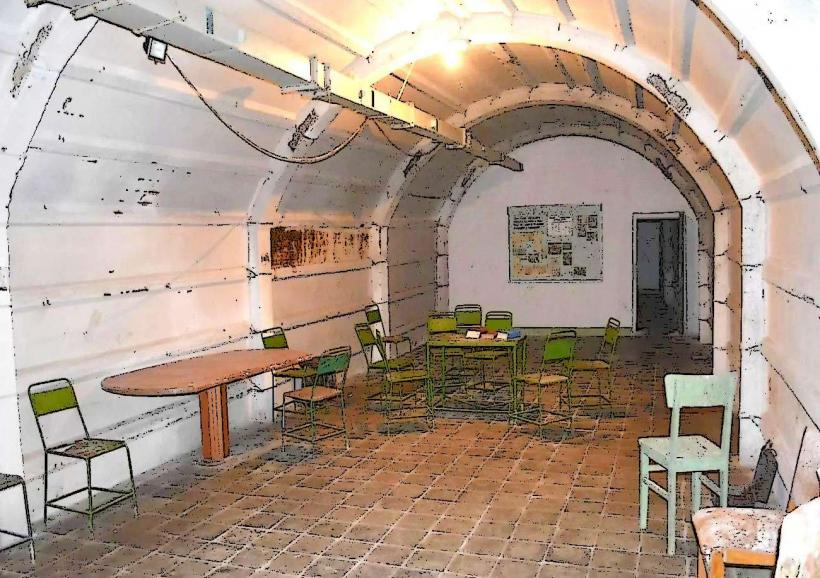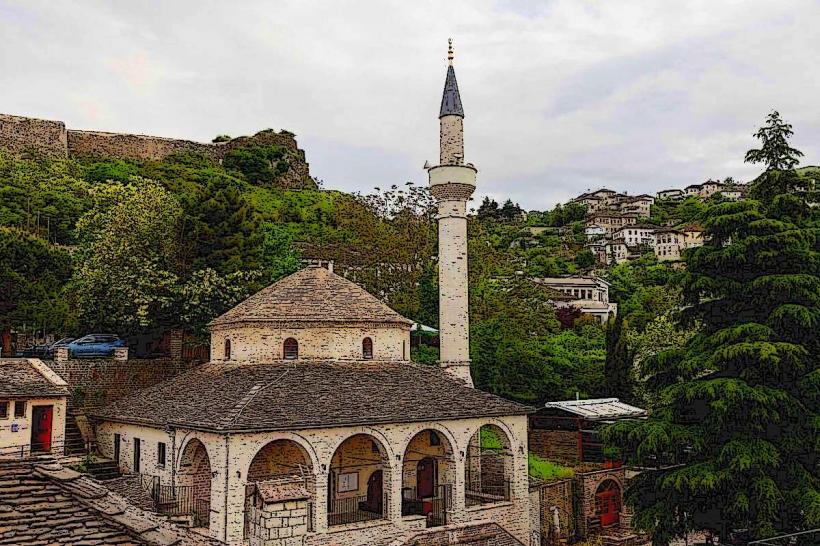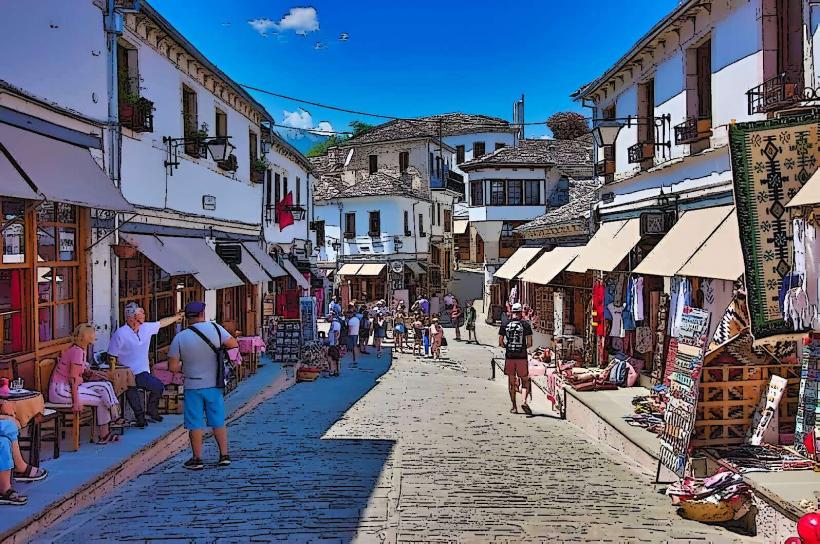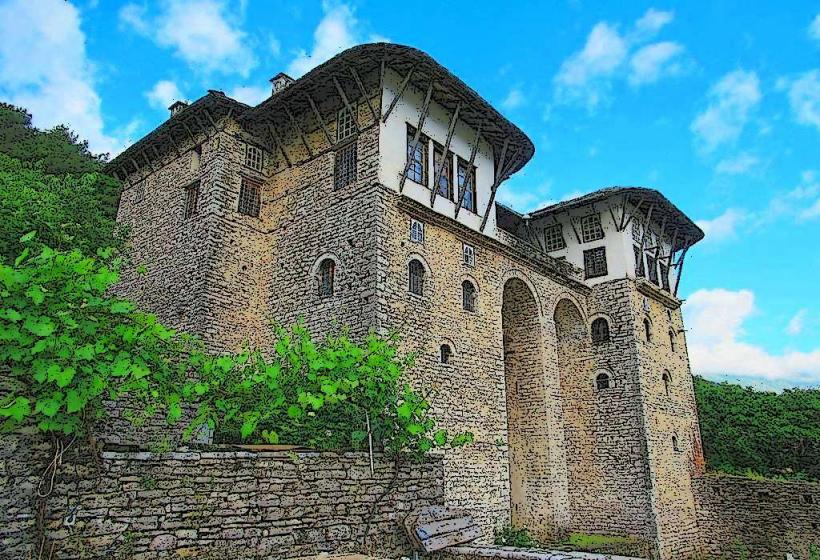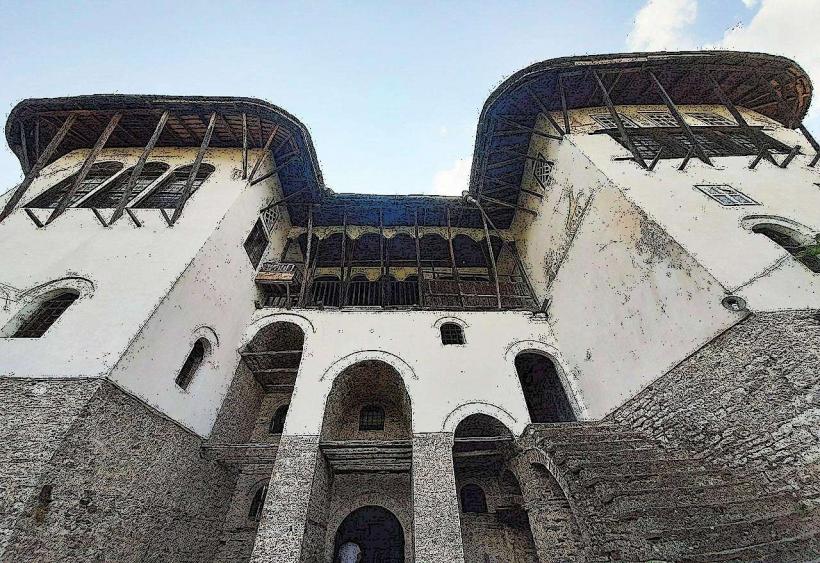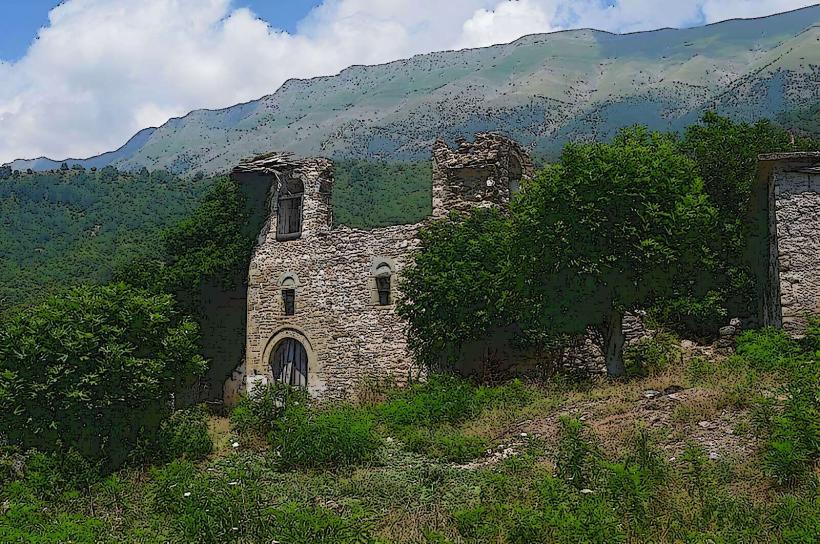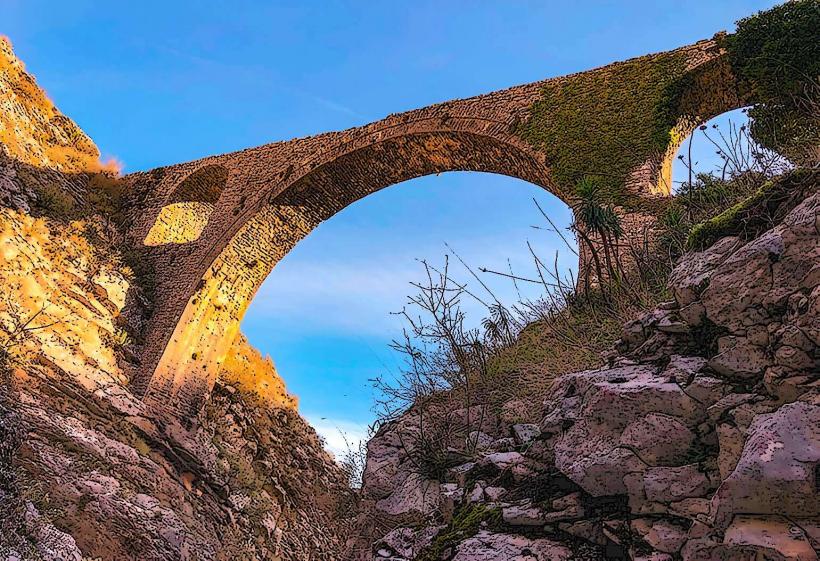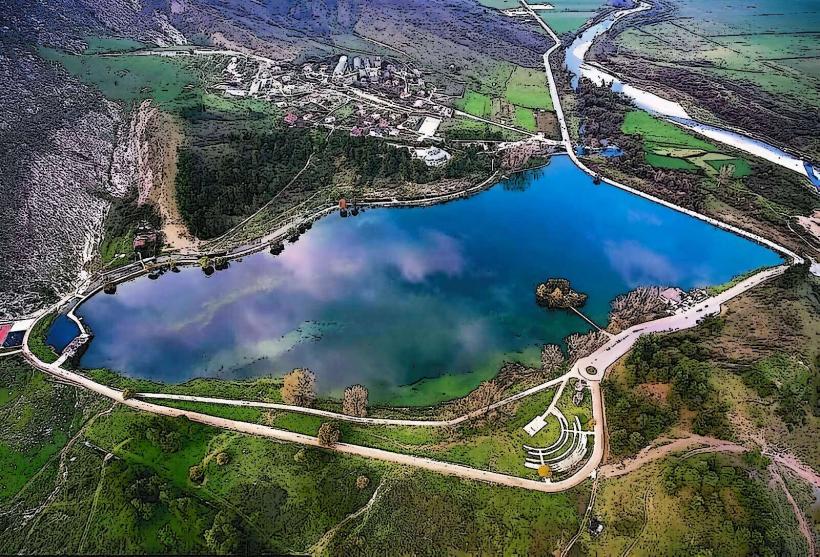Information
Landmark: Antigonea Archaeological ParkCity: Gjirokaster
Country: Albania
Continent: Europe
Antigonea Archaeological Park, Gjirokaster, Albania, Europe
Antigonea Archaeological Park (Parku Arkeologjik i Antigonesë) is an ancient Hellenistic city located on the Hill of Jerma, approximately 14 kilometers east of Gjirokastër. Founded in 295 BC by King Pyrrhus of Epirus, it was famously built in honor of his wife, Antigone, and is often described as a "city built by love and destroyed by hatred."
Visual Characteristics
The park spans over 90 hectares on a high plateau, offering panoramic views of the Drinos Valley. The ruins are characterized by a strict Hippodamian (grid) street plan, featuring parallel north-south roads and wide east-west intersections. While the superstructures are gone, the stone foundations clearly outline ancient dwellings, workshops, and communal spaces. The site is surrounded by a 4-kilometer circuit of massive limestone walls, with the South Gate being the best-preserved segment.
Location & Access Logistics
Antigonea is situated near the village of Saraqinisht.
By Vehicle: From Gjirokastër, the drive takes approximately 35–45 minutes. You must take the road toward the village of Asim Zeneli and follow the paved, winding mountain road to Saraqinisht.
By Taxi: A round-trip taxi from Gjirokastër is the most common option for international visitors, typically costing between 2,000 and 3,000 ALL.
Hiking: A popular trekking route connects the village of Asim Zeneli to the park, taking roughly 4–5 hours through the Lunxhëria mountain range.
Historical & Ecological Origin
King Pyrrhus intended the city to be a strategic stronghold for the Epirote League. It flourished for only 127 years until 167 BC, when the Roman Consul Aemilius Paullus ordered its destruction (along with 70 other towns in Epirus) in retaliation for the Pyrrhic Wars. The city was set on fire and never fully rebuilt, leaving a thick layer of ash that archaeologists discovered centuries later. The park is now an ecologically pristine site, surrounded by oak forests and traditional shepherd pastures.
Key Highlights & Activities
The Peristyle House: The most iconic landmark, featuring re-erected stone columns that belonged to a wealthy ancient residence.
Early Christian Basilica: A 5th-century church built atop the ancient ruins, featuring a polychrome mosaic floor depicting Saint Christopher (occasionally covered for protection).
The Agora: The central marketplace and social hub of the city, where ancient coins from throughout the Mediterranean have been unearthed.
The Sphinx Figurines: While the originals are in museums, the site is famous for the discovery of unique bronze figurines, including a notable sphinx.
Infrastructure & Amenities
Infrastructure at the site is basic. There is a Visitor Information Center at the entrance where you can pay the entry fee.
Hours: Generally open daily from 09:00 to 16:00 (weekends may have shorter hours).
Fees: Entry for adults is approximately 200 ALL.
Facilities: There are few amenities beyond a small parking area and basic restrooms near the entrance. Visitors are advised to bring water, as the site is exposed and the plateau can be very hot in summer. 4G cellular signal is generally available.
Best Time to Visit
The best time to visit is during the spring (April–June) or autumn (September–October) to avoid the intense midday heat of the Gjirokastër region. Early morning visits provide the best lighting for photography across the Drinos Valley. In late August, the site is occasionally used for cultural events and traditional polyphonic singing performances.
Facts & Legends
According to Plutarch, the city's destruction was so absolute that it was effectively "erased" from history until excavations in the 1970s confirmed its location. A verified archaeological oddity is the discovery of bronze tesserae (tickets) inscribed with "Antigoneon," which definitively proved the site's identity. Local lore still maintains that the city’s treasure was buried in secret karst caves on the Jerma hill before the Roman legions arrived.
Nearby Landmarks
Hadrianopolis (Sofratika): 10.0km Southwest (Roman theater ruins)
Labova e Kryqit Church: 12.0km East (One of the oldest churches in Albania)
Gjirokaster-castle_gjirokaster" class="underline">Gjirokastër Castle: 14.0km West
Dhoksat Village: 6.0km North (Traditional stone architecture)
Drinos River: 4.0km West (Valley floor)

